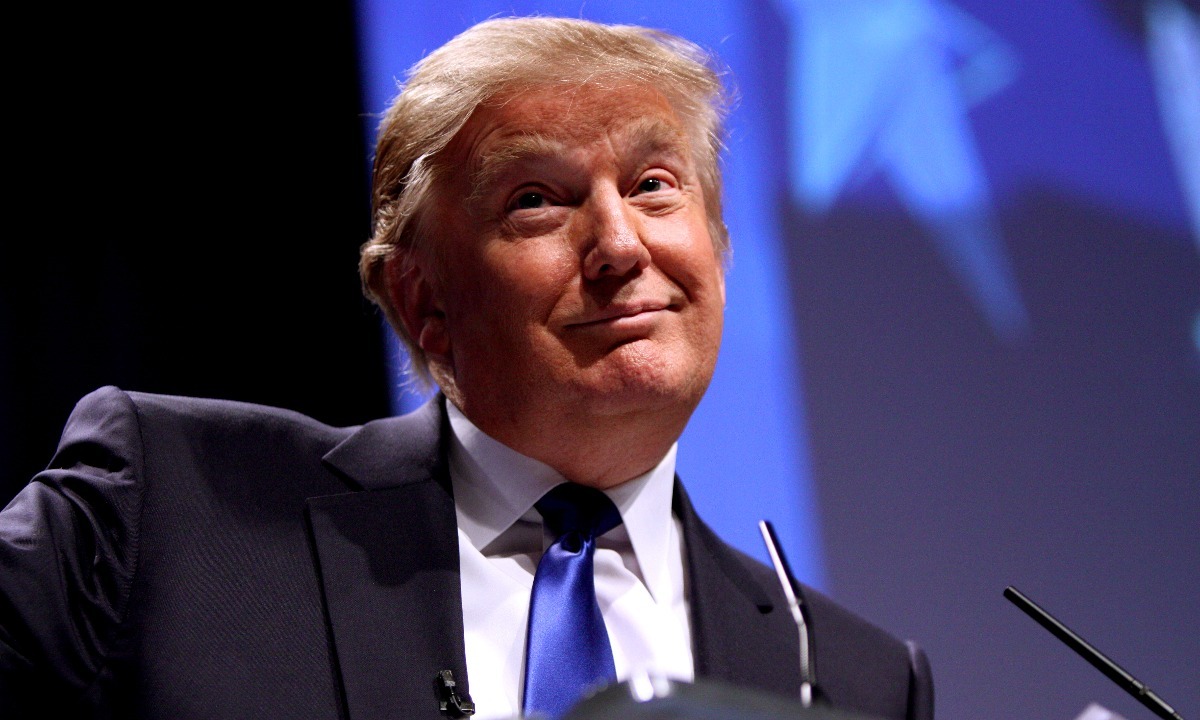Risks of Crypto Donations in Trump’s Campaign
08.08.2024 16:00 2 min. read Alexander Stefanov
For the first time in a U.S. election, a major political candidate is accepting cryptocurrency donations. Former President Donald Trump has made a surprising pivot, now embracing digital assets and even suggesting that all remaining Bitcoin should be mined in the U.S.
This shift marks a significant reversal from Trump’s previous stance, where he labeled Bitcoin a “scam” threatening the dollar. Despite this change, the crypto community’s reaction has been generally positive, with many investors and consumers eager to support his re-election bid through crypto.
Blockchain data shows that Trump has already received substantial contributions in Ethereum (ETH) and USD Coin (USDC), totaling at least $6 million through a single address in recent months.
However, accepting crypto donations comes with notable risks. The security protocols for cryptocurrencies are still evolving, and the exposure of donor addresses could lead to issues ranging from political espionage to criminal activities.
For instance, Trump’s campaign might face challenges from phishing attacks and potential contamination of funds with “dirty crypto” — stolen or illicit funds that could complicate the integrity of the campaign’s finances.
Additionally, larger donors might face scrutiny and harassment, and new supporters unfamiliar with cryptocurrencies could find the donation process cumbersome and risky. Fake donation sites could also trick donors, intercepting their funds.
The campaign will need to address these risks by implementing secure practices and considering new technologies. Solutions such as human-readable addresses and enhanced cryptographic proofs could simplify the donation process and improve security.
As digital assets become more integrated into political fundraising, addressing these issues will be crucial for campaigns looking to harness the benefits of cryptocurrency donations while mitigating associated risks.
-
1
FTX Pushes to Dismiss Billion-Dollar Claim from 3AC
23.06.2025 15:00 1 min. read -
2
BIS Slams Stablecoins, Calls Them Ill-Suited for Modern Monetary Systems
26.06.2025 9:00 1 min. read -
3
ARK Invest Cashes In on Circle Rally as Stock Soars Past $60B Valuation
24.06.2025 19:00 1 min. read -
4
Trump’s ‘Big, Beautiful Bill’ Approved: What It Means for Crypto Markets
04.07.2025 7:00 3 min. read -
5
FTX Pushes Back Against $1.5B Claim From Defunct Hedge Fund 3AC
23.06.2025 11:00 1 min. read
Coinbase Strengthens DeFi Push With Opyn Leadership Acquisition
Coinbase has taken a major step toward expanding its decentralized finance (DeFi) presence by bringing onboard the leadership team behind Opyn Markets, a prominent name in the DeFi derivatives space.
Grayscale Urges SEC to Allow Multi-Crypto ETF to Proceed
Grayscale Investments has called on the U.S. Securities and Exchange Commission (SEC) to allow the launch of its multi-crypto ETF—the Grayscale Digital Large Cap Fund—arguing that further delays violate statutory deadlines and harm investors.
Robinhood Launches Ethereum and Solana Staking for U.S. Users
Robinhood has officially introduced Ethereum (ETH) and Solana (SOL) staking services for its U.S. customers, offering a new way for users to earn rewards on their crypto holdings.
Binance CEO Reveals What’s Fueling the Next Global Crypto Boom
Binance CEO Richard Teng shared an optimistic outlook on the future of cryptocurrencies during an appearance on Mornings with Maria, highlighting growing global acceptance, regulatory progress, and strategic reserve integration.
-
1
FTX Pushes to Dismiss Billion-Dollar Claim from 3AC
23.06.2025 15:00 1 min. read -
2
BIS Slams Stablecoins, Calls Them Ill-Suited for Modern Monetary Systems
26.06.2025 9:00 1 min. read -
3
ARK Invest Cashes In on Circle Rally as Stock Soars Past $60B Valuation
24.06.2025 19:00 1 min. read -
4
Trump’s ‘Big, Beautiful Bill’ Approved: What It Means for Crypto Markets
04.07.2025 7:00 3 min. read -
5
FTX Pushes Back Against $1.5B Claim From Defunct Hedge Fund 3AC
23.06.2025 11:00 1 min. read



